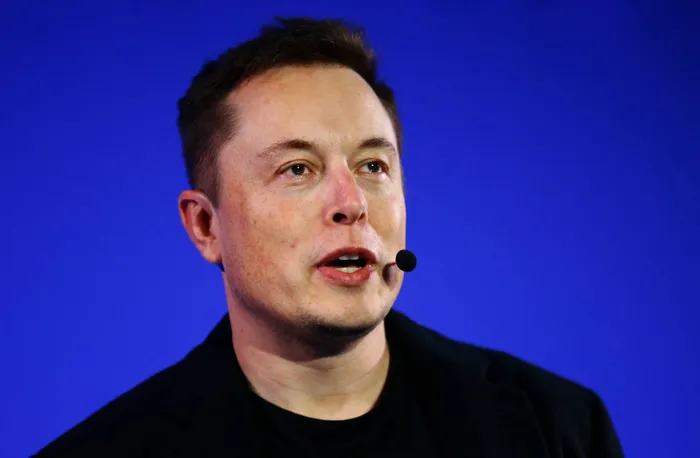'We will fight corporate terror': EFF rejects Minister Malatsi’s attempt to facilitate Starlink entry

EFF rejects Minister Malatsi’s unlawful attempt to bypass South Africa’s 30% local ownership law for Elon Musk’s Starlink, saying legal compliance and transformation must be upheld to protect jobs, sovereignty, and national security.
Image: AP Photo/Francois Mori
THE Economic Freedom Fighters (EFF) has condemned Minister Solly Malatsi's recent actions aimed at enabling Elon Musk's Starlink satellite company to operate in South Africa without adhering to local ownership laws.
The party expressed deep concern over what it described as an unlawful attempt to bypass legislation designed to protect local economic interests and transformation.
On Tuesday, Malatsi appeared before the Portfolio Committee on Communications and Digital Technologies to justify his directive, which seeks to “align” the Electronic Communications Act and the ICT Sector Code.
This “alignment” would allow foreign entities to operate without complying with the 30% local ownership requirement mandated by law for previously disadvantaged groups.
Instead, the EFF said Malatsi wants Starlink to use “Equity Equivalents” under the Broad-Based Black Economic Empowerment (B-BBEE) Act, an approach the EFF describes as an “anti-transformation participation” strategy.
EFF spokesperson Sinawo Tambo said: "In what can only be described as an unlawful attempt at subverting the powers of the Parliament of South Africa by using a Ministerial Policy Directive, Minister Malatsi characterises the amendments he wants to make to two Acts of Parliament as regulatory alignment."
When pressed by the EFF, Tambo said the Minister failed to adequately address whether his directive amounts to amending the law.
More importantly, Malatsi admitted that the Independent Communications Authority of South Africa (ICASA) advised him that the correct path would be to amend the Electronic Communications Act itself, not circumvent it via policy alignment, he said.
"The fact that the regulatory authority is alive to the legislative irregularity of the Minister's attempts means there is certainty that the only lawful mechanism for Starlink to exist in South Africa is through full compliance with our laws, or through a legally sound amendment of legislation.
''No other mechanism, including a Ministerial Directive, can ease conditions for Starlink to operate in our country."
Beyond the legal issues, the EFF raised political concerns about allowing Starlink’s entry.
Elon Musk, who owns Starlink, has previously peddled disinformation about South Africa, expressed disdain for transformation, and proposed to operate without guarantees for local jobs in the telecommunications industry, said the EFF.
Tambo noted that the Portfolio Committee echoed this sentiment with a “resounding call” rejecting Starlink and any attempts to subvert legislation by abusing Executive powers and undermining the will of the people, which resides in Parliament.
Tambo said: "The EFF vows, that over and above legislative requirements, we will fight tooth and nail against corporate terror that uses access to diplomatic channels and Presidents to pursue business interests."
The EFF further links Starlink’s push for entry in South Africa to demands made by Johann Rupert at the Oval Office and warns that Starlink represents a national security threat, a threat to local jobs, and a threat to the country’s sovereignty and independence.
The party reiterated its firm stance to oppose any introduction of Starlink that does not comply fully with South African law, both inside Parliament and, if necessary, through the courts.
''We Say No To Starlink in South Africa!''
Related Topics: